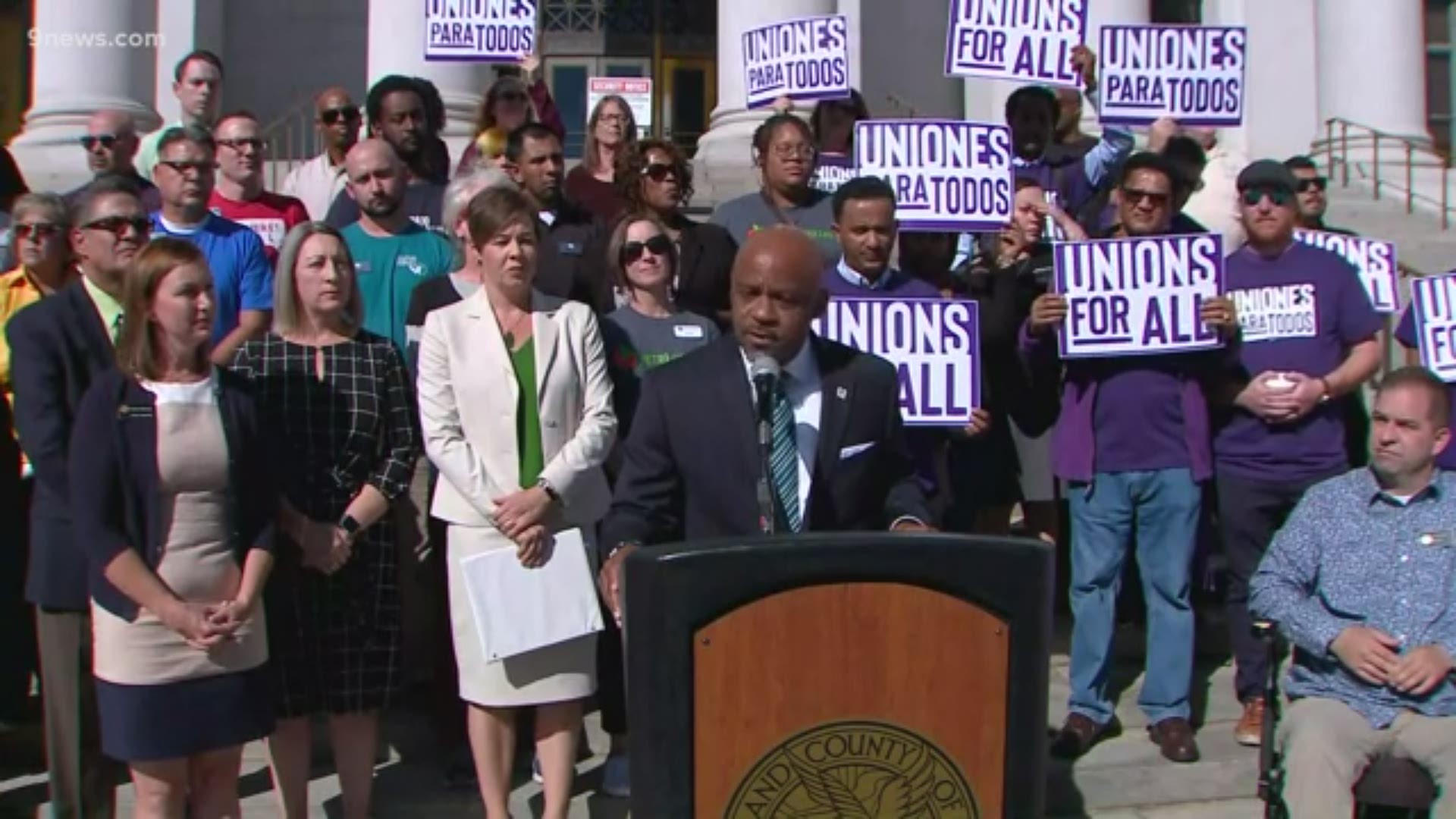DENVER, Colorado — City leaders have unveiled a proposal for a citywide $15 minimum wage by 2021.
That’s $3 more than what the state minimum wage will be in 2020, and Denver would be the first city in Colorado to have its own minimum. During a press conference on Thursday, Mayor Michael Hancock and Councilwoman Robin Kniech shared a plan they said would help improve decades of wage stagnation and income inequality within in the city.
“For decades, wages and incomes have been falling behind other rising costs,” Hancock said. “That means more and more families haven’t been able to keep up. That is what wage stagnation does."
City council is expected to consider the proposal in November. If it passes, more than 100,000 Denver workers would see higher wages starting as early as January 2020.
“Denver is going to lead the way to higher wages and a more inclusive and equitable economy, because a raise for Denver’s workers would mean families can better support themselves and better afford the city that they helped to build," Hancock said.
Under the proposal, Denver’s minimum wage would rise to $13.80 an hour on Jan. 1, $15.87 on Jan. 1, 2021, and then rise according to the Consumer Price Index each year after that.
But the Colorado Restaurant Association worries about how this would be implemented. A higher minimum wage could increase the cost of menu items, but President and CEO Sonia Riggs said there are other consequences.
“The restaurant industry is facing a crisis already," Riggs said. "The earnings gap between the front of the house and the back of the house is already significant. Anytime we see a minimum wage increase, that gap widens.”
Tipped workers, like servers and bartenders, have a minimum wage that’s about $3 less than all other employees because they also earn tips. Riggs said they make between $20 and $40 an hour right now.
She said most back-of-house employees, including cooks and dishwashers, already make the minimum $15 an hour that Denver is considering. So they wouldn’t get a raise under the proposal.
That means servers could, theoretically, make between $23 and $43 an hour, while kitchen staff still hover around $15 an hour, further increasing the wage gap, Riggs said.
This could make things tougher for those restaurants already fighting to keep talented cooks or hard-working dishwashers who are facing an increased cost of living.
As the city mulls over how employees both in and out of the restaurant industry can earn more, Riggs said she hopes they listen to all stakeholders, including some restaurants who will likely ask for this to happen gradually.
“The average profit margin for a restaurant is between 3% and 6%, so any small change in their cost is going to have a huge impact on that restaurant,” Riggs said. “We are going to see restaurants having to increase prices, they’ll change items on their menu, finding something more cost-efficient.”
SUGGESTED VIDEOS | Local stories from 9NEWS


